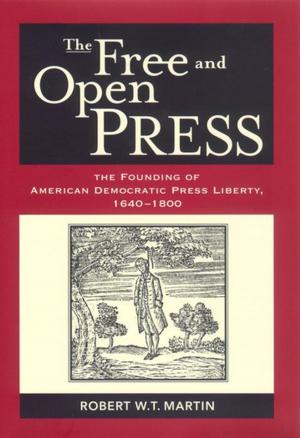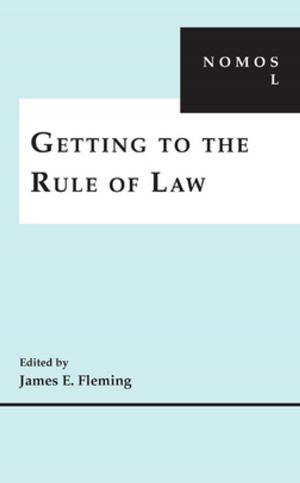Disagreements of the Jurists
A Manual of Islamic Legal Theory
Nonfiction, Religion & Spirituality, Christianity, Church, Law, Fiction & Literature, Literary Theory & Criticism| Author: | al-Qadi al-Nu'man | ISBN: | 9781479892358 |
| Publisher: | NYU Press | Publication: | October 3, 2017 |
| Imprint: | NYU Press | Language: | English |
| Author: | al-Qadi al-Nu'man |
| ISBN: | 9781479892358 |
| Publisher: | NYU Press |
| Publication: | October 3, 2017 |
| Imprint: | NYU Press |
| Language: | English |
A masterful overview of Islamic law and its diversity
Al-Qadi al-Nu'man was the chief legal theorist and ideologue of the North African
Fatimid dynasty in the tenth century. This translation makes available for the
first time in English his major work on Islamic legal theory (usul al-fiqh),
which presents a legal model in
support of the Fatimid claim to legitimate rule.
Composed as part of a grand project to establish the theoretical
bases of the official Fatimid legal school, Disagreements of the Jurists
expounds a distinctly Shi'i system of hermeneutics. The work begins with a
discussion of the historical causes of jurisprudential divergence in the first
Islamic centuries and goes on to engage, point by point, with the specific
interpretive methods of Sunni legal theory. The text thus preserves important
passages from several Islamic legal theoretical works no longer extant, and in
the process throws light on a critical stage in the development of Islamic
legal theory that would otherwise be lost to history.
A masterful overview of Islamic law and its diversity
Al-Qadi al-Nu'man was the chief legal theorist and ideologue of the North African
Fatimid dynasty in the tenth century. This translation makes available for the
first time in English his major work on Islamic legal theory (usul al-fiqh),
which presents a legal model in
support of the Fatimid claim to legitimate rule.
Composed as part of a grand project to establish the theoretical
bases of the official Fatimid legal school, Disagreements of the Jurists
expounds a distinctly Shi'i system of hermeneutics. The work begins with a
discussion of the historical causes of jurisprudential divergence in the first
Islamic centuries and goes on to engage, point by point, with the specific
interpretive methods of Sunni legal theory. The text thus preserves important
passages from several Islamic legal theoretical works no longer extant, and in
the process throws light on a critical stage in the development of Islamic
legal theory that would otherwise be lost to history.
A masterful overview of Islamic law and its diversity
Al-Qadi al-Nu'man was the chief legal theorist and ideologue of the North African
Fatimid dynasty in the tenth century. This translation makes available for the
first time in English his major work on Islamic legal theory (usul al-fiqh),
which presents a legal model in
support of the Fatimid claim to legitimate rule.
Composed as part of a grand project to establish the theoretical
bases of the official Fatimid legal school, Disagreements of the Jurists
expounds a distinctly Shi'i system of hermeneutics. The work begins with a
discussion of the historical causes of jurisprudential divergence in the first
Islamic centuries and goes on to engage, point by point, with the specific
interpretive methods of Sunni legal theory. The text thus preserves important
passages from several Islamic legal theoretical works no longer extant, and in
the process throws light on a critical stage in the development of Islamic
legal theory that would otherwise be lost to history.
A masterful overview of Islamic law and its diversity
Al-Qadi al-Nu'man was the chief legal theorist and ideologue of the North African
Fatimid dynasty in the tenth century. This translation makes available for the
first time in English his major work on Islamic legal theory (usul al-fiqh),
which presents a legal model in
support of the Fatimid claim to legitimate rule.
Composed as part of a grand project to establish the theoretical
bases of the official Fatimid legal school, Disagreements of the Jurists
expounds a distinctly Shi'i system of hermeneutics. The work begins with a
discussion of the historical causes of jurisprudential divergence in the first
Islamic centuries and goes on to engage, point by point, with the specific
interpretive methods of Sunni legal theory. The text thus preserves important
passages from several Islamic legal theoretical works no longer extant, and in
the process throws light on a critical stage in the development of Islamic
legal theory that would otherwise be lost to history.















